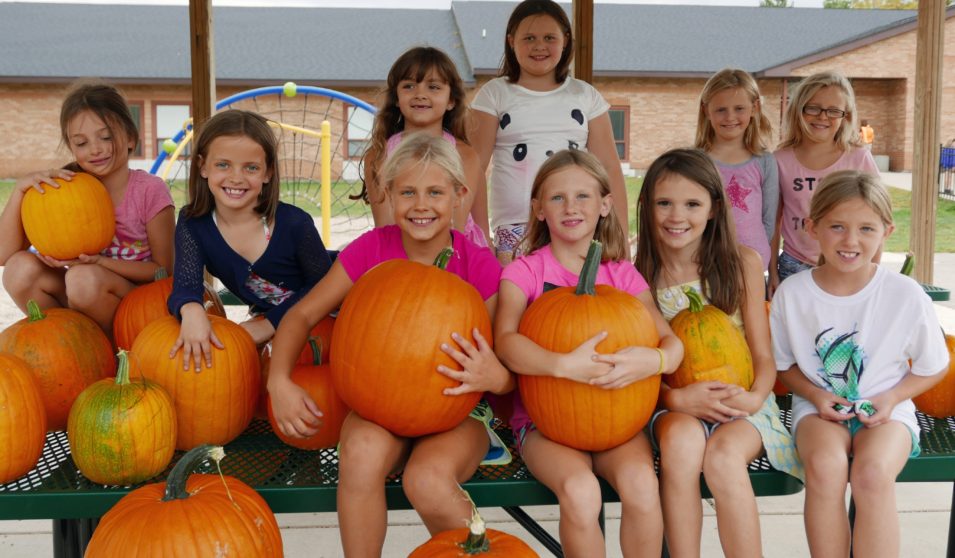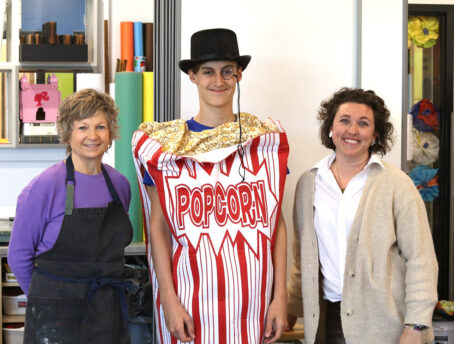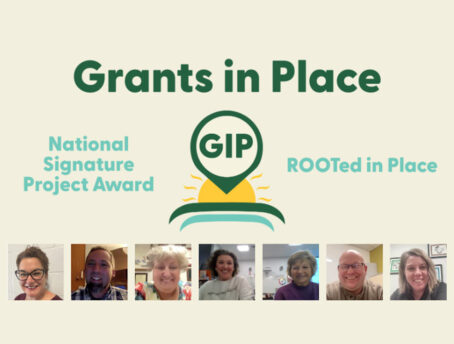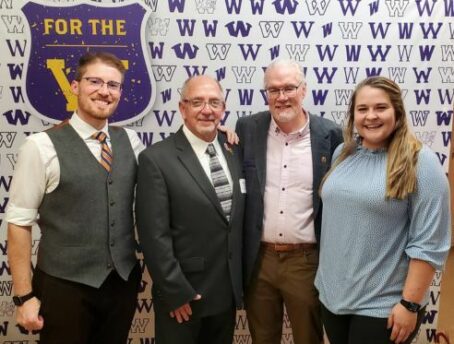The Rural Schools Collaborative believes that schools in small towns are the cornerstones of rural places. Small schools are meeting places, the common thread between generations, the investment in the town’s future, the connection to the town’s past and heritage. Nowhere is this more apparent than in Hollandale and Blanchardville, Wisconsin, the two towns comprising Pecatonica Area School District.You arrive in Hollandale via winding roads: the country highways twist and turn out of necessity, following the contours of the driftless region of Wisconsin. A three-minute drive brings you from one side of town to the other, where the Elementary school sits on top of a small rise. The small, tidy building is bordered on one side by a farm, fields, and woodlands, and the other nudges against the edge of town.
Superintendent Jill Underly highlights the assets of the two school buildings. Though Pecatonica is a small district (the average graduating class is around 30 students) there are a wealth of amenities: a brand new, cheerful playground for elementary students sits next to a significant school garden where students are busy picking raspberries and admiring the impressive collection of pumpkins they harvested last week. At the secondary level, students enjoy a new addition on the combined middle/high school building and plenty of space for arts and tech ed classes.
These strong resources come from the community’s belief in the importance of its public schools. A colorful US map painted on the concrete was donated by a local group of motorcycle enthusiasts, and serves as both a teaching tool and a playful space for kids to congregate during recess. The playground and swing set where kids are playing was funded by a group of school alumni, who want to see their alma mater continue to help Pecatonica students succeed. A local factory donates thousands of box tops for education each year to provide funding for the schools. These small things add up for this small town.
“People just give us things,” said Underly, looking across the schoolyard appreciatively. “We don’t even have to ask.”
Besides physical amenities, the local communities and the schools are tied together in other ways: farmers will often work with the high school tech ed and agriculture classes on fixing equipment in the school’s shop. This past summer, the school district worked with the community to provide a structured, safe environment for kids while they weren’t in school: Camp Pecatonica day camp served kids ages 4-12, and operated out of an otherwise vacant community building. The program was taught in part by local high school students. They led their younger peers in games, athletics, teamwork activities, arts and crafts, nature, field trips, healthy eating and lifestyle, and social well-being activities. They also took trips to the town pool, to local farms and festivals, and State and local parks.
This sense of pride and togetherness between school in community is imperative to the success of small schools. Underly said the district has very little issue finding good teachers. As she walks through the hallways of the high school, she points to classroom doors, remarking that most of the teachers in the school grew up locally, either in the Pecatonica district or nearby. In the halls of the elementary school, teachers have signs on their doors that note where they went to college, emphasizing the importance of the teaching career to their young students.
Educators in Pecatonica feel valued by their community and the administration. And education itself is a valued asset: later this year, the high school and middle school plan to start a Future Teachers Club, to encourage students who are interested in a career in education to learn more and engage with learning opportunities that offer them experience in the field (like working at Camp Pecatonica, where they can plan activities and lead students throughout the summer).
It’s easy to feel the cumulative effect of this community’s commitment to its small schools; and it’s not only felt, but seen: students in Pecatonica are brimming with pride, and we certainly agree that they’re lucky to be in such a great school.
Above: student-built Little Free Libraries dot the community in Blanchardville.
Rural Schools Collaborative believes that small towns and small schools get better together. Find out more about the Rural Advantage.
Learn more about the Rural Schools Collaborative's southern Wisconsin hub.




